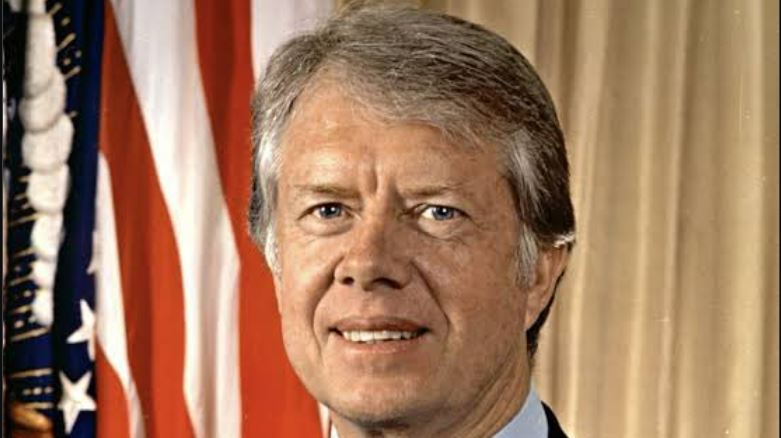On a quiet evening in Plains, Georgia, the world bid farewell to one of its most humble and influential leaders, Jimmy Carter, who passed away at 100. Having served as the 39th President of the United States, Carter’s life was a testament to service, integrity, and humanitarianism, leaving an indelible mark on American history and global peace efforts. From his humble beginnings in rural Georgia to his work as a statesman, philanthropist, and advocate for human rights, Jimmy Carter’s life was an example of the power of compassion and determination.
The nation will miss President Jimmy Carter dearly, and it’s up to each of us to carry on his legacy. pic.twitter.com/6C1cVm7TKJ
— The White House (@WhiteHouse) December 30, 2024
Jimmy Carter: Early Life
James Earl Carter Jr., born on October 1, 1924, in Plains, Georgia, was the eldest of four children in a family deeply rooted in farming. His early life was marked by hard work on his family’s peanut farm, which instilled in him a strong work ethic and an understanding of rural America’s challenges. Carter’s education was equally humble, starting at Plains High School before attending Georgia Southwestern College and later the Georgia Institute of Technology. His academic journey culminated at the United States Naval Academy, where he graduated in 1946, excelling in nuclear engineering under the guidance of Captain Hyman G. Rickover, who would later influence his leadership style.
Naval Career and Return to Plains
Jimmy Carter served in the U.S. Navy, rising to the rank of lieutenant, with assignments that included nuclear submarine programs. However, his career in the Navy was cut short when his father passed away in 1953, compelling him to return to Plains to manage the family farm. This return marked the beginning of his political career, driven by a desire to improve his community’s welfare.
Carter’s interest in public service grew during these years, leading him to enter politics. He served in the Georgia State Senate from 1963 to 1967 before becoming the state’s governor in 1971. As governor, Carter gained attention for his progressive stance on civil rights and government reform, laying the groundwork for his national political ambitions.
Political Ascendancy:
Elected as President in 1976, Jimmy Carter was an anomaly – a Washington outsider who promised to restore trust in government. Here are some key highlights of his presidency:
-
Human Rights: Carter made human rights a cornerstone of his foreign policy, influencing U.S. relations with countries like Argentina and the Soviet Union. His administration’s stance on human rights opened dialogues and influenced international policy.
-
Camp David Accords: Perhaps one of his most enduring legacies, Carter brokered the peace treaty between Egypt and Israel in 1978, earning him a Nobel Peace Prize in 2002, though posthumously awarded. The accords were a monumental step towards Middle East peace.
-
Panama Canal Treaties: He negotiated treaties to transfer control of the Panama Canal back to Panama, an act that, while controversial at home, was seen as a move towards equitable international relations.
-
Energy Policy: Facing the oil crisis, Jimmy Carter introduced comprehensive energy legislation aimed at reducing dependence on foreign oil, promoting conservation, and developing alternative energy sources.
-
Iran Hostage Crisis: One of the defining challenges of his presidency, the 444-day ordeal of American hostages in Iran ended just minutes after Ronald Reagan’s inauguration in 1981. The crisis, however, overshadowed many of his achievements and contributed to his electoral defeat.
-
Environmental Conservation: Carter significantly expanded the U.S. National Park system and was instrumental in the passage of the Alaska National Interest Lands Conservation Act, one of the most significant land conservation measures in U.S. history.
Post-Presidential Life:
After leaving the White House, Jimmy Carter did not retire but rather expanded his humanitarian efforts. He co-founded The Carter Center with his wife, Rosalynn, focusing on human rights, peace, and health issues around the globe. Through Habitat for Humanity, Carter personally engaged in building homes for the less fortunate, earning him the nickname “America’s greatest ex-president.”

